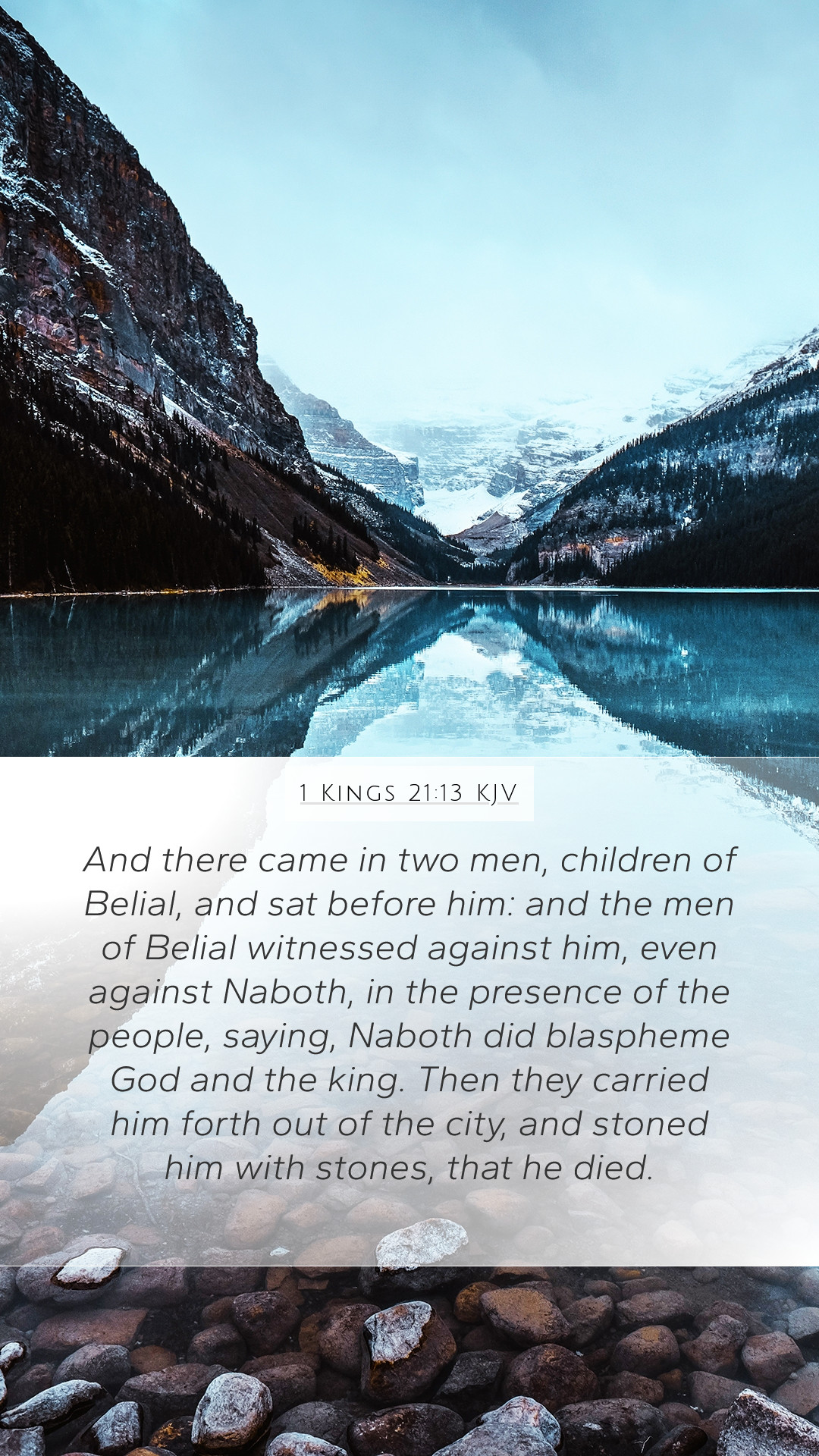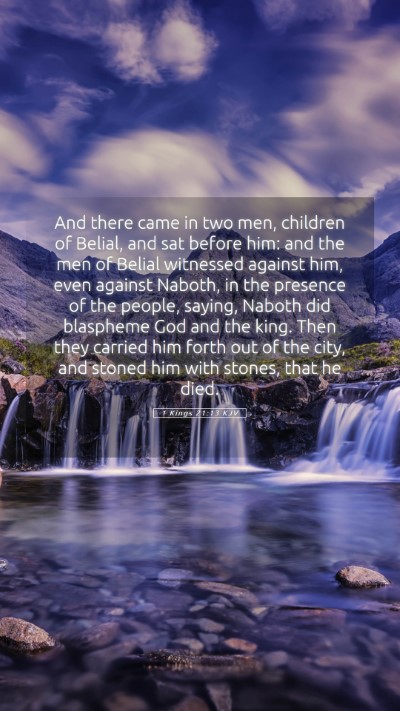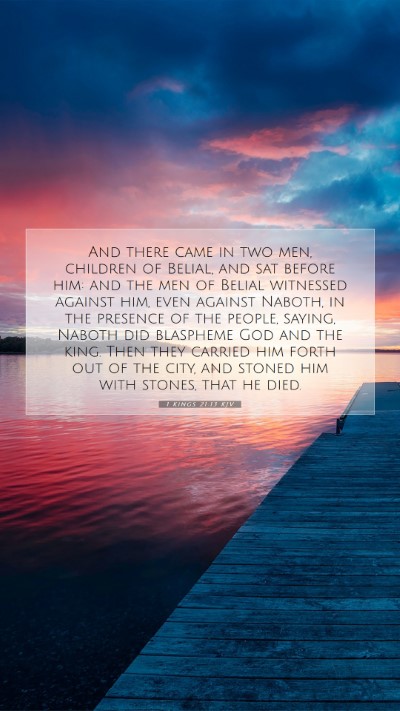Old Testament
Genesis Exodus Leviticus Numbers Deuteronomy Joshua Judges Ruth 1 Samuel 2 Samuel 1 Kings 2 Kings 1 Chronicles 2 Chronicles Ezra Nehemiah Esther Job Psalms Proverbs Ecclesiastes Song of Solomon Isaiah Jeremiah Lamentations Ezekiel Daniel Hosea Joel Amos Obadiah Jonah Micah Nahum Habakkuk Zephaniah Haggai Zechariah MalachiVerse
1 Kings 21:1 1 Kings 21:2 1 Kings 21:3 1 Kings 21:4 1 Kings 21:5 1 Kings 21:6 1 Kings 21:7 1 Kings 21:8 1 Kings 21:9 1 Kings 21:10 1 Kings 21:11 1 Kings 21:12 1 Kings 21:13 1 Kings 21:14 1 Kings 21:15 1 Kings 21:16 1 Kings 21:17 1 Kings 21:18 1 Kings 21:19 1 Kings 21:20 1 Kings 21:21 1 Kings 21:22 1 Kings 21:23 1 Kings 21:24 1 Kings 21:25 1 Kings 21:26 1 Kings 21:27 1 Kings 21:28 1 Kings 21:29

